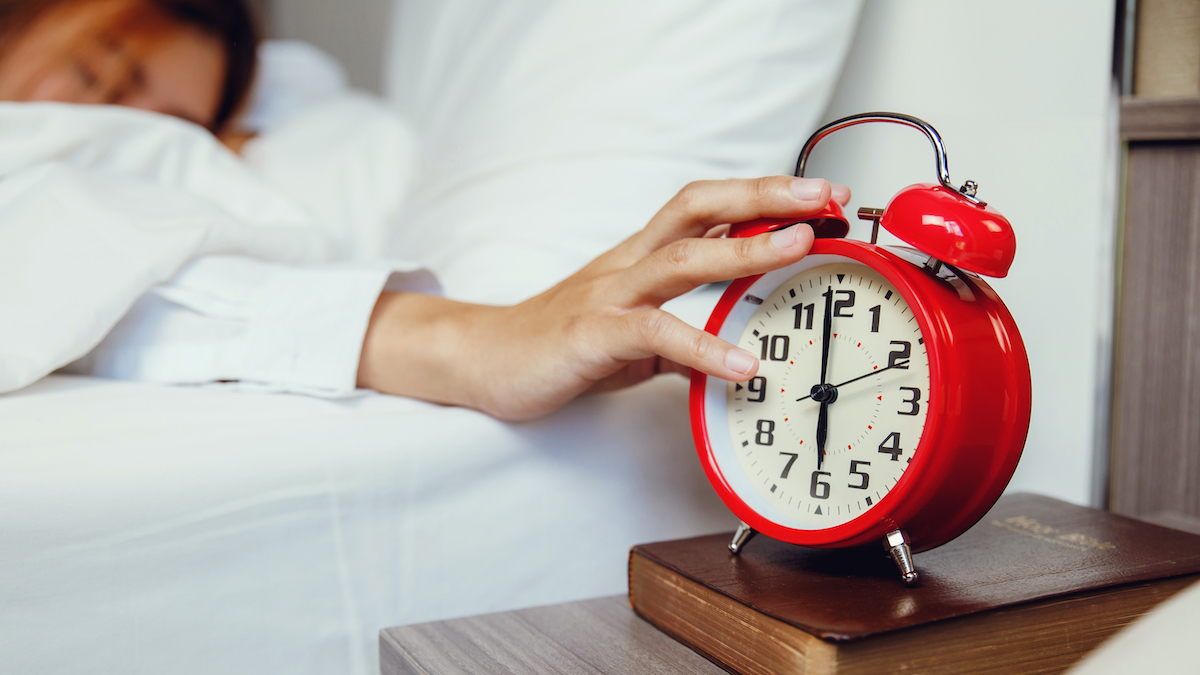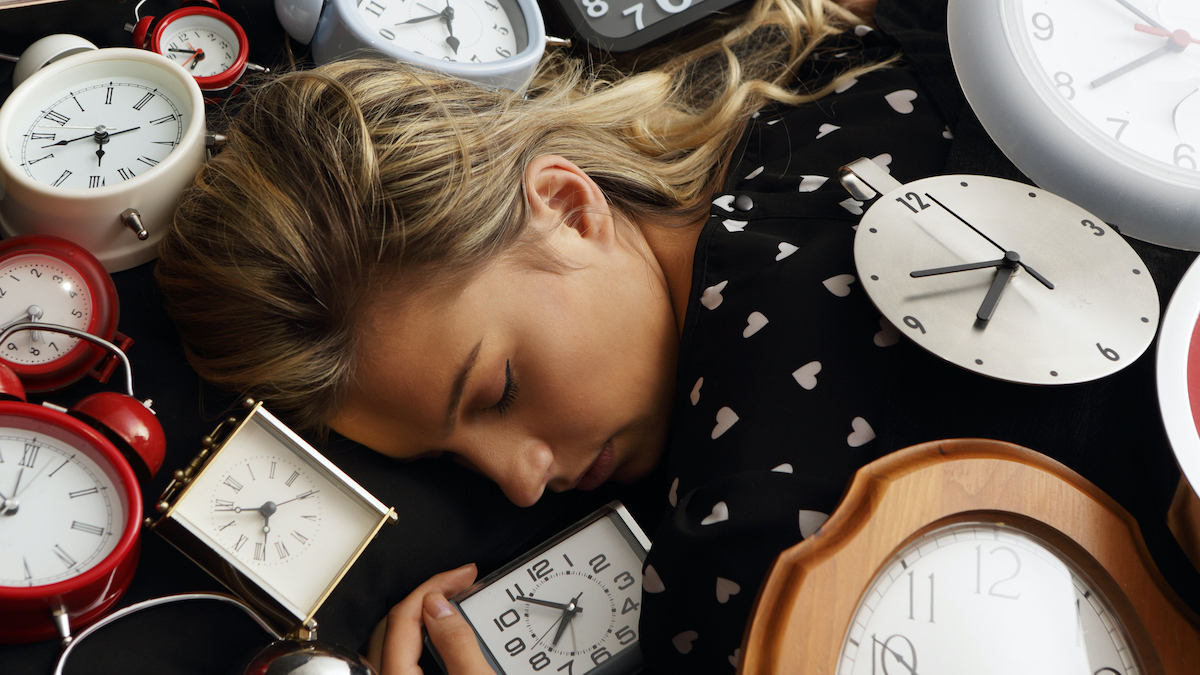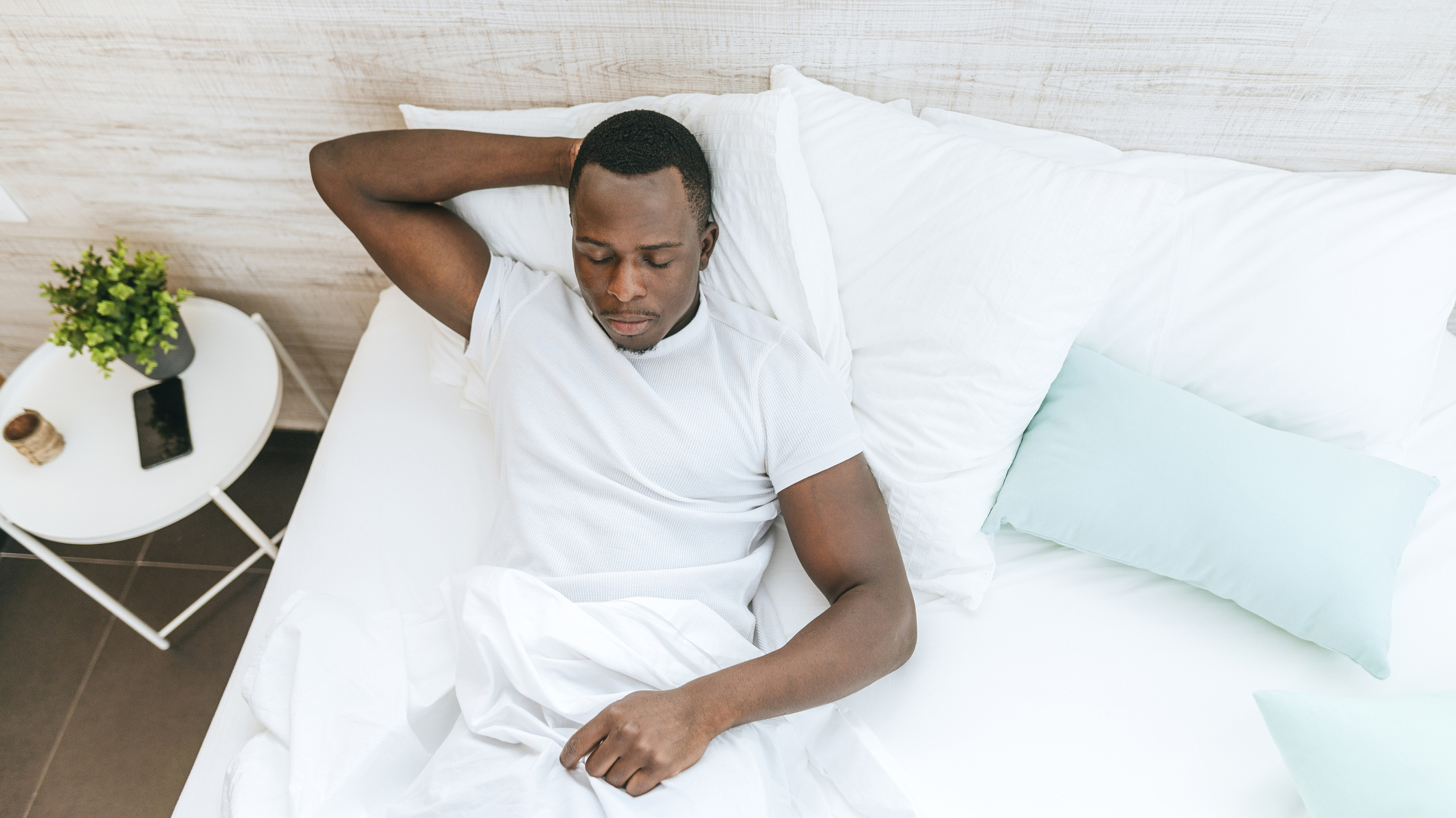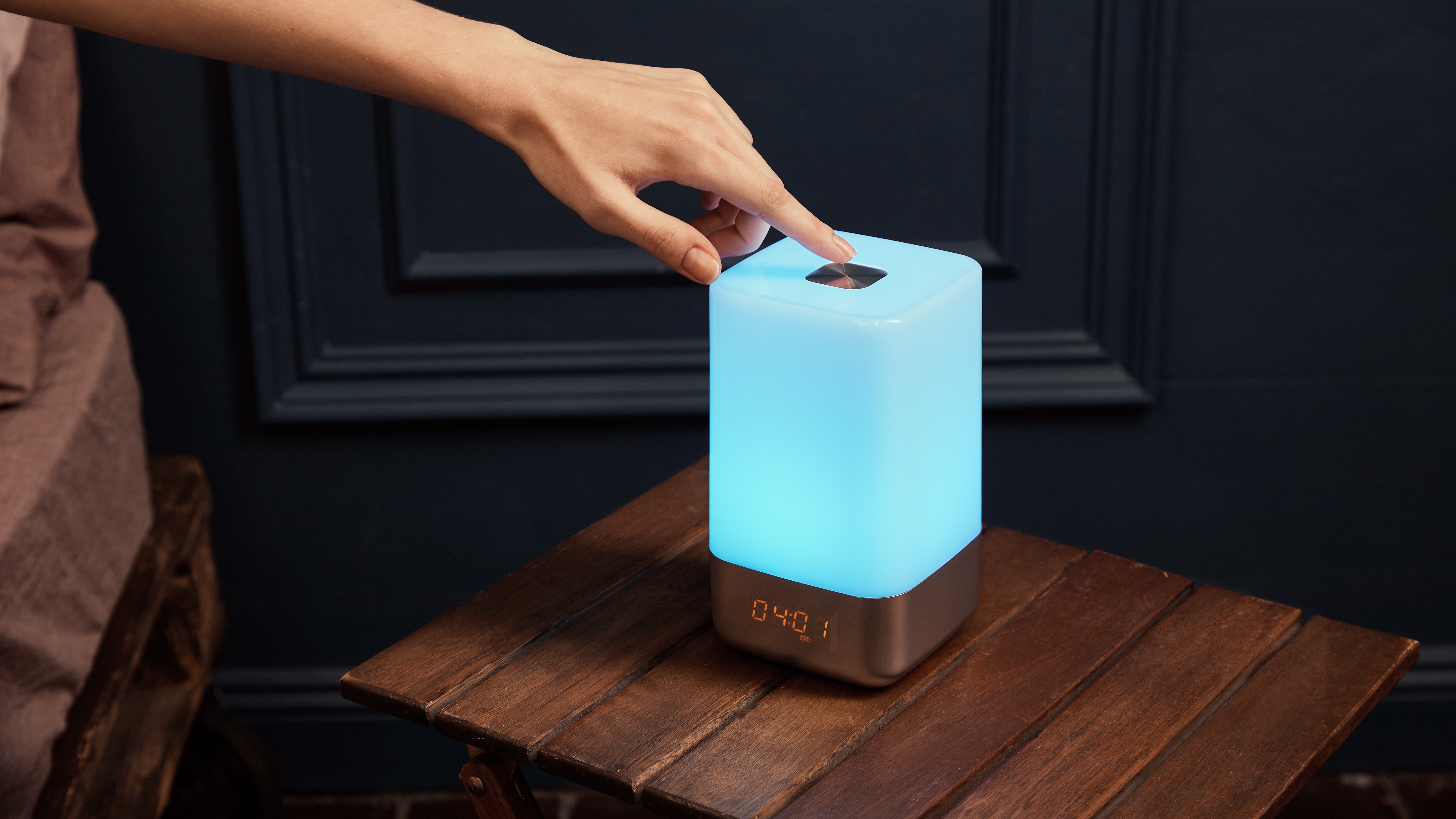How to adjust your sleep routine ahead of the clocks going back
Tips for adjusting your sleep routine to the changing of the clocks, including when to eat and exercise

Sign up for breaking news, reviews, opinion, top tech deals, and more.
You are now subscribed
Your newsletter sign-up was successful
The clocks go back in the UK on Sunday 31 October, giving us all a much-needed extra hour of sleep. For people who snooze well whatever the weather, the changing of the clocks isn't too disruptive, as chances are you'll adjust quickly to the time change.
But that isn't the case for everyone, especially for people who normally have trouble sleeping. For some, the clocks going back can make them feel jet-lagged and sluggish, and they may find it tricky to drift off and wake up on time. So what's going on?
"Our circadian rhythms are governed by sunlight and other environmental cues," says April Mayer, a sleep expert at Amerisleep, "which means you will feel the effects if your sleeping pattern changes without any preparation. If you don't take steps to minimize the effect, it can take a few days or even around a week to get your sleep schedule back on track."
Shifting your routine, including evening screen time and when you work out (because exercise affects sleep) can help your body adapt to the clock change. With that in mind, here's how to adjust your sleep routine ahead of the clocks going back, and how to sleep better and wake up feeling refreshed throughout autumn and winter...
How to adjust your sleep for the clocks going back
"The night before the clock change, we recommend maximizing your relaxation by shutting off all your screens about two hours before bedtime. Unwind with a warm bath or shower, some light stretches, and a good book or another light activity," says Mayer.
Follow this simple plan to gradually change when you go to sleep and your sleep schedule will be so much easier to adjust when the clocks go back:
- On the Friday before the clocks go back, eat, sleep and exercise 25 minutes earlier than usual.
- On the Saturday before the clocks go back, eat, sleep and exercise 20 minutes earlier than usual.
- On the Sunday when the clocks go back, eat, sleep and exercise according to the new time.

Experts recommend getting outdoors for an early morning walk, and eating earlier than you used to, because both light exposure and your mealtimes have an impact on your internal clock (circadian rhythm). That, in turn, dictates when you feel sleepy or awake.
Sign up for breaking news, reviews, opinion, top tech deals, and more.
While this is all good advice, James Wilson, a sleep expert from Being Well Family, says that it's also important not to get anxious about the clocks going back. "Worrying will only make sleep harder. Instead, accept that sleep might be a bit more difficult in the couple of days after the change."
How is sleep affected by the clocks going back?
Although sleep for some people is unaffected by the clocks going back, others might feel jetlagged, moody, and hungrier or less hungry than normal (with an urge to eat weird times too). So what’s going on?
Mayer, explains it like this: "While the clocks have changed, our body clocks are still existing in the previous pattern before the change – we may feel hungry at the 'wrong' times, and we may find ourselves feeling sleepier or more awake at unusual moments."
Our bodies operate on a 24-hour cycle called a circadian rhythm. This carries out essential functions beyond helping you to just feel sleepy or awake. Your circadian rhythm also dictates your energy levels, mood, appetite and more.
When the clocks go back, your circadian rhythm isn’t altered drastically. But it is altered enough for you to notice some side effects. These can include feeling tired and grumpy, and you could see a change in your appetite too.

How to feel more energised on darker mornings
Once your sleep has adjusted to the clocks going back, the other thing you’ll likely be dealing with is how to feel alert on darker mornings. Waking up in the dark can make it feel like you need more sleep in winter, but a proper morning routine can help you shake off that sluggish feeling.
There are a number of steps you can take to send signals to your body that you’re awake and raring to go. Here are Wilson’s top tips:
- Eat breakfast soon after waking. Even if you’re not hungry first thing, a small snack will get your digestive system working.
- Exercise. Movement is a great way to get your blood pumping and prime your body for the day.
- Stretch. No time for a full workout? Stretch instead. It might not get your heart rate up as much as more strenuous exercise, but it’ll prime your body for the day.
- Drink water. Not only will this ensure you’re hydrated after sleep, it’ll kick your body into gear.
A good wake up light (a sunrise alarm clock) is also your friend here, as these bedside-dwelling machines wake you up with a warm, sunshine glow that gets gradually brighter over a set period of time (usually 20-30 minutes).
“Using natural light to wake up, by using a sunshine alarm clock, makes it easier to avoid pressing snooze over and over again,” says Wilson, who also recommends buying a light therapy box.
“The light frequency of a light box mimics the sun, so it increases cortisol (a wake up hormone) and discourages the production of melatonin, which encourages you to feel sleepy."

How to sleep well during autumn and winter
Many of us naturally feel more sluggish at this time of year due to lack of strong sunlight and less time spent outside. To offset the grogginess, we might hit the caffeine harder.
Trouble is, caffeine has a half-live of five to eight hours, so if you drink it later in the afternoon, it might be in your system come bedtime. So try to stick to a couple of cups of coffee a day. If you’re sensitive to caffeine, don’t consume it after midday.
Alcohol affects your shut-eye too – it makes you feel dehydrated, which wakes you up from sleep. To lessen its impact, aim to match every alcoholic drink with water to stay hydrated and sleep better.
To sleep well through autumn and winter, experts also recommend:
1. Exercise outdoors earlier in the day to catch that naturally, energy- and mood-boosting daylight. Use a fitness tracker for daily encouragement.
2. Stick to a consistent wake-up time to strengthen your circadian rhythm. This is more important than a consistent bedtime.
3. Avoid naps if you have trouble sleeping at night. Daytime naps, especially long ones, lower your drive (desire) to sleep at night.
4. Keep your bedroom warm but not toasty – 16-18 degrees (60.8-64.4°F) is considered to be the best bedroom temperature for sleeping.
5. Use soft lighting at night to signal to your brain that it’s time to relax for sleep.
Make sure your bed is comfy and supportive too. If yours is causing aches and pains, or you just can’t seem to get comfy no matter what, it could be time for an upgrade. Our guide to the best mattress for all budgets can help you make a great choice.
Now is a good time to buy too as we’re seeing some good offers from leading brands ahead of the official Black Friday mattress deals arriving. To save money on a leading memory foam mattress and snag free sleep gifts, read our round-up of the best Nectar mattress sales this month.